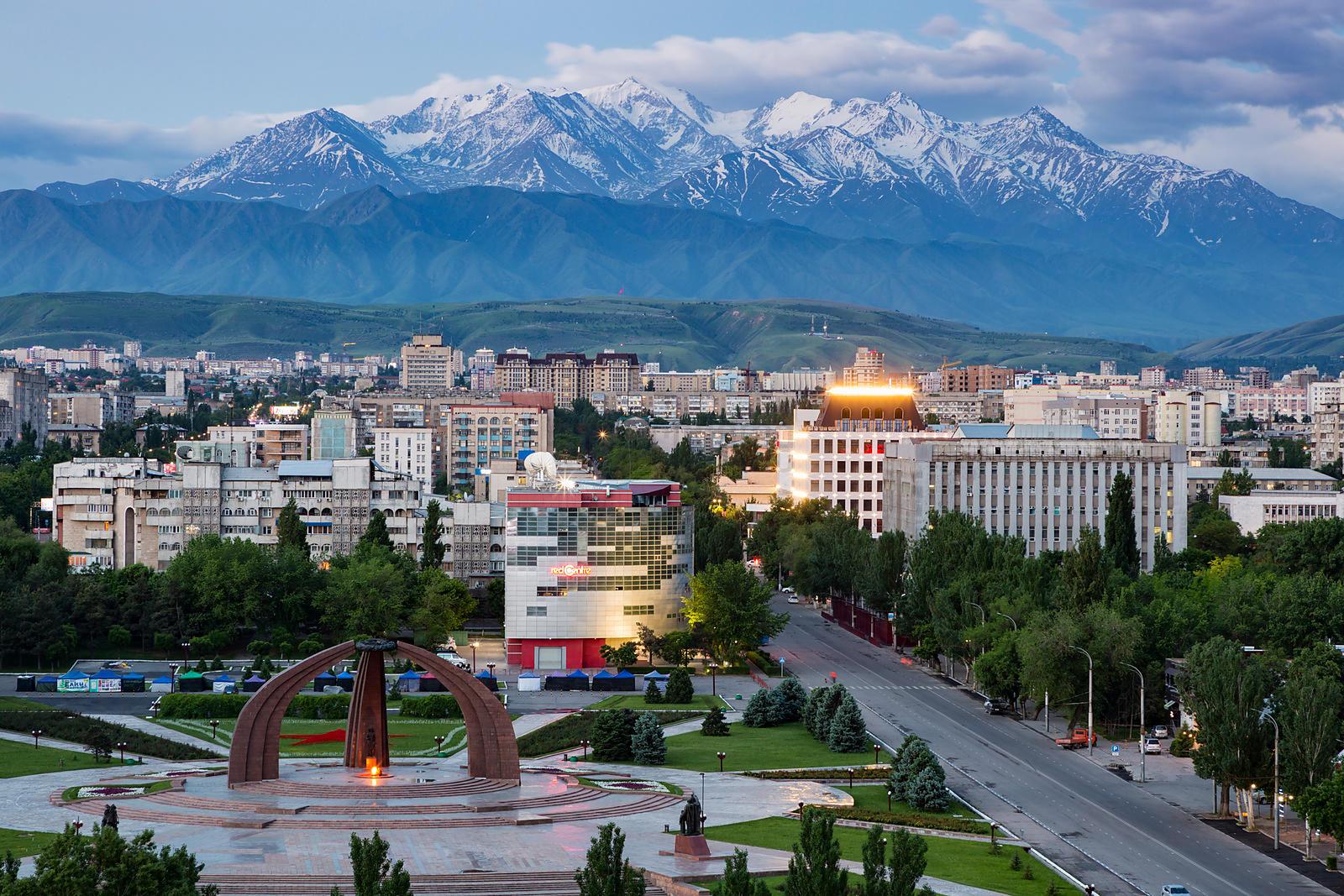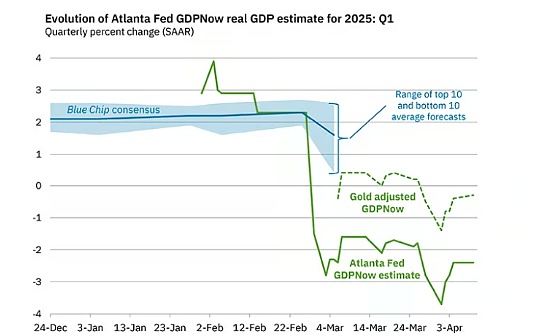Promote gold stablecoin and invite CZ as a Web3 consultant. Kyrgyzstan presses the "accelerator" of the national blockchain strategy

Reprinted from panewslab
04/16/2025·5D
Author: Weilin, PANews
Kyrgyzstan, a Central Asian country, is quietly rising into a country worthy of attention to the exploration of crypto innovation.
On April 15, Kyrgyzstan officially announced that the State Investment Agency, directly under the President, signed a strategic memorandum of understanding (MoU) with Binance founder Zhao Changpeng (CZ), to officially appoint CZ as the official advisor for the development of the country, cryptocurrency regulation and Web3 innovation. The news was also confirmed by Kyrgyz President Sadyr Zhaparov on the X platform as early as April 3.
CZ is officially hired as a consultant, Kyrgyzstan's national blockchain
strategy is accelerating
According to the Memorandum of Understanding signed this time, CZ will provide the Kyrgyz government with guidance on a forward-looking framework in the field of digital assets, including technical support for blockchain infrastructure and policy development. This cooperation will also focus on promoting talent training and accelerating the construction of a DeFi and Web3 technology innovation environment.
Interestingly, on April 4, in response to the community-based communication, "The Kyrgyzstan country plans to take the lead in opening a national cryptocurrency exchange and will serve as a trading hall for two buildings", CZ issued a clarification on the X platform: "If there is no building, what digital currency exchange uses a building to serve as a trading hall?"
On April 7, President Sadyr Zhaparov replied, "I have been busy with the Central Asia-EU summit these days. Today I finally have time to read the comments. It's really nice to see everyone's interest in Kyrgyzstan! Someone mentioned in the comments that someone promised to cooperate in building a building. I'm not sure who promised what to whom - but if Binance needs a building, we'll make sure there is one."
Although it has not been confirmed whether to jointly build an office building, the cooperative relationship between the two parties has increased significantly.
According to the official notice, the signing of the memorandum is consistent with Kyrgyzstan's overall strategy to promote the modernization of the financial system and build a regional digital innovation center. The development of blockchain and digital finance has been listed as a national priority, according to an official statement from the President’s Office.
“We welcome global leaders with deep expertise and able to help build forward-looking and secure ecosystems,” said Kyrgyz President Sadyr Zhaparov. “Blockchain and digital finance are national priority areas, and this cooperation marks a meaningful step for us.”
In addition to regulatory efforts, the Memorandum of Understanding also proposes a number of support initiatives covering education, workforce training and cross-border knowledge exchange in blockchain-related fields. These initiatives are designed to promote the development of the country's entrepreneurial ecosystem and to align Kyrgyzstan with global best practices in virtual asset regulation.
Behind this cooperation is the result of Kyrgyzstan's continuous promotion of the development of crypto finance in the past three years. Since the Virtual Assets Act of 2022 established a clear legal framework for crypto activities, the country has demonstrated its readiness for cryptocurrency adoption by launching state cryptobanks and integrating blockchain technology into its areas such as its banking system, digital payments and financial regulation. According to Kyrgyzstan's law, Bitcoin is considered a commodity, not a securities or currency. On local commodity exchanges, mining, buying, selling and trading of Bitcoin are legal. However, the use of Bitcoin as a currency in domestic settlement is restricted.
According to the Central Asia Times on January 7, 2025, Kyrgyzstan individuals and businesses are on the rise in interest in cryptocurrencies, and despite this, the overall market regulation is still weak.
“Given the rapid development of digital technologies and cryptocurrencies, establishing a crypto bank has become an urgent need to incorporate crypto assets into the country’s traditional financial system,” said the Ministry of Economics and Commerce of Kyrgyzstan.
The country's Ministry of Economics and Commerce believes that setting up a licensed crypto bank will help solve these challenges and increase market transparency, trust and financial security. Through this move, Kyrgyzstan hopes to attract foreign investment, promote technological innovation, and provide citizens with a safe and regulated access to cryptocurrency.
Kyrgyzstan’s strategy is to focus on “licensed crypto banks”, which is unique. Relevant banks will operate under a strict regulatory framework to ensure the system is transparent and safe.
The decision to promote the establishment of licensed crypto banks is due to the high emphasis on risk control. These agencies will comply with strict regulatory regulations to ensure the security of user funds and personal data. In addition, regulatory intervention can also help combat illegal acts such as money laundering and fraud. By incorporating cryptocurrencies into the banking system, Kyrgyzstan hopes to provide modern financial services to underserved people.
Kyrgyzstan has imposed taxes on crypto mining. The country imposes a 10% tax on electricity costs on cryptocurrency mining activities, which already includes VAT and sales tax. According to data from the Ministry of Finance, from January to November 2024, Kyrgyzstan collected a total of 46.6 million Som (about 537,000 US dollars) through crypto mining taxes, which is nearly half of the total amount in 2023.
What are the highlights of USDKG when launching a gold-backed stablecoin?

In addition to making efforts at the regulatory and policy levels, Kyrgyzstan is also exploring the combination of technology and assets. An important case is the launch of the gold-backed stablecoin USDKG, a stablecoin project supported by the Ministry of Finance and anchored by gold reserves, is regarded as one of the pillar projects in the Kyrgyz blockchain strategy.
In a recent AMA, two consultants for the project, William Campbell and Gabriel Guerra, gave a more detailed introduction to the project. USDKG's credibility comes from its nationally supported architecture. Stablecoins are only issued on the basis of new gold reserves, thus preventing the risk of random issuance and inflation. The total initial gold mortgage value is US$500 million, and is expected to increase to US$2 billion within 24 months, further consolidating its long-term stability.
Transparency is the core principle of USDKG design. Each USDKG is backed by physical gold, stored in an audited secure vault. Regular third-party audits and public proof of reserve systems ensure complete transparency. This distinguishes USDKG from private stablecoins that are questioned for opaque reserve management.
The spokesperson clearly outlined the role of the state in the project. "The role of the Kyrgyz Ministry of Finance is limited to providing gold reserves. The rest of the development, auditing and maintenance are done by private companies and individuals," Campbell clarified.
USDKG will be launched first on Ethereum and plans to expand to other chains as adoption increases. “We are creating an international asset with a long-term vision to compete with major stablecoins such as USDC and USDT,” Campbell said.
USDKG is not only a means of storing value, but also expected to become an important tool for trade, cross-border transactions and remittances. For countries like Kyrgyzstan that are highly dependent on overseas remittances, USDKG provides a low-cost, efficient alternative to traditional banks. In addition, USDKG is designed to operate on centralized and decentralized exchanges, ensuring that it can be widely accessed and used by institutions and retail investors.
Kyrgyz stablecoins are positioned as a solution for cross-border payments, as remittances account for about 30% of the country's GDP. By integrating into the financial ecosystem, USDKG enables instant, low-cost international transactions, making it easier for overseas workers to send money to their homes.
The first step in integrating USDKG into the local financial system will be to connect it to Kyrgyz banks and institutions and make it a fiat currency in the country. Once this foundation is established, it will be expanded to other Central Asian markets. “The Central Asian market is undoubtedly the target, but we are also interested in Southeast Asia and the Middle East where gold support has important economic and cultural value,” Guerra said.
USDKG will also be listed on global cryptocurrency exchanges, allowing activities such as lending, earnings farming. According to Campbell, users will have three redemption options: “Anyone holding USDKG can exchange physical gold in Kyrgyzstan, exchange it for cryptocurrencies such as USDT, or withdraw fiat currencies through traditional banking systems.”
Compete with neighboring countries, encrypting regulatory frameworks
become a new focus of economic policies in Central Asian countries
It is worth mentioning that Kyrgyzstan is not the only country in Central Asia to take regulatory exploration. A member of the lower house of Kazakhstan's parliament recently called on the government to set up a national crypto bank as a centralized platform for custody and transactions of legal digital assets. Councilman Azat Peruashev said the lack of clear regulatory infrastructure has led to a growing illicit crypto activity, with most transactions occurring outside the official regulatory system. He believes that state-led institutions help curb tax evasion, fraud and capital outflows through unregulated platforms.
Peruashev proposed that the National Bank and licensed financial institutions should be involved in the project and defined it as a necessary measure to deal with the widespread abuse of crypto assets. He cited unofficial data and pointed out that up to 90% of crypto transactions in Kazakhstan are in the "gray zone" and huge amounts of capital flow out of the country without censorship.
Meanwhile, Uzbekistan has legalized crypto transactions and has established a national regulatory mechanism to manage the industry. Another thing to look forward to in the future is whether Kyrgyzstan will follow the example of El Salvador and set Bitcoin as a fiat currency as its regulatory statutory currency.
Many Central Asian countries are accelerating their investment in the crypto industry and related regulatory policies, marking a change in the country's attitude towards digital infrastructure - it is no longer just a financial tool, but is regarded as a means of national governance. Blockchain technology is being included in the overall planning of national modernization and geostrategy, and subsequent developments are worthy of further attention.

 jinse
jinse

 chaincatcher
chaincatcher